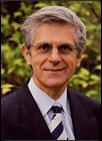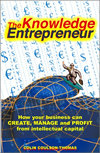 |
 |
|
 |
Transforming the Company: How to Manage Change,
Compete and Win
By Professor Colin Coulson-Thomas
Some companies succeed. People accomplish their aims. Other businesses
stagnate. People work hard, adopt fashionable approaches, use big name
consultants … but they still fail. Why is this? What do winners
do differently?
Despite the rhetoric about nimble, flexible and responsive organizations,
the economic downturn caught many companies flatfooted. Why the gap between
aspiration and achievement? What are the strugglers overlooking or doing
wrong?
The experience of over 2,000 companies reveals why there is a wide gulf
between intentions and outcomes. Frustration is the inevitable consequence
of how many people set about activities such as winning business, building
customer relationships, creating and exploiting know-how, and the management
of change.
The Centre for Competitiveness has identified what needs to be done. The
results are summarized in a new book: ‘Transforming the Company,
Manage Change, Compete and Win’.
The differences between winners and losers are stark. Both categories
attract clever and highly paid people who play their respective roles
to perfection. Lets look at some dos and don’ts for becoming a winner:
| • |
Inspire and motivate with a distinctive vision, compelling purpose
and clear objectives. Avoid rhetoric, blather and hype. |
| • |
Be confident and determined, pragmatic and positive. Will to win.
Strive for success rather than survival. Don’t rationalize disappointment.
Learn from it. |
| • |
Be proactive rather than reactive. Identify and approach those you
would like to do business with. Don’t wait to be asked. |
| • |
Be selective. Focus upon the areas that make a difference. Don’t
spread yourself too thinly or bark up the wrong trees. |
| • |
Only change what needs to be changed. Avoid change for changes sake
– it can be stressful and disruptive of valued relationships. |
| • |
Be interested in others rather than preoccupied with yourself. Don’t
sell. Help people to buy. |
| • |
Trust people and take calculated risks. Delegate. Encourage entrepreneurship.
Don’t avoid commitments or fear the unknown. Innovate, explore
and discover. |
| • |
Make sure people understand what they need to do. Equip them with
the understanding and job support tools to do what is expected of
them. |
| • |
Think for yourself. Differentiate. Create bespoke offerings, additional
choices and new markets. Avoid imitation, band-waggons and me-too
approaches. |
| • |
Be open. Value relationships and invite feedback. Question and challenge.
Don’t duck issues. Become a business partner rather than commodity
supplier. |
| • |
Address specifics, adopt simple solutions and think before you act.
Read the road ahead. Assemble what you will need to succeed. Avoid
fads, panaceas and single solutions. |
| • |
Choose colleagues with care. Surround yourself with pragmatic and
competent contributors. Don’t be deceived by appearances. Avoid
the slick and the smooth. |
| • |
Don’t confuse operational and strategic issues, or your personal
interests with those of the company. Build an effective board of competent
directors. |
| Finally, go for it. Achieving success can be fun. It
is usually much easier than managing the consequences of failure. |

Professor Colin Coulson-Thomas |
About the Author:
Professor Colin Coulson-Thomas
is an experienced chairman of award winning companies and consultant.
He has advised over 80 boards on how to improve board and corporate
performance, leads the world's largest winning business research
and best practice programme, and has reviewed the processes and
practices for winning business of over 50 companies.
Following marketing and general management roles Colin became the
world's first Professor of Corporate Transformation and more recently
Process Vision Holder of major transformation projects. He is the
author of over 30 books and reports, including ‘Individuals
and Enterprise’ (Blackhall Publishing, 1999), 'Shaping Things
to Come' (Blackhall Publishing, 2001), 'Transforming the Company,
Manage Change, Compete and Win' (Kogan Page, 2002 and 2004)
and ‘The Knowledge Entrepreneur’(Kogan Page,
2003). Colin has spoken at over 200 national and international conferences
and corporate events in over 20 countries. He can be contacted:
Tel: 01733 361 149
Fax: 01733 361 459
Email: colinct@tiscali.co.uk
Web: www.ntwkfirm.com/colin.coulson-thomas
|
|
Transforming the Company: Manage Change, Compete & Win
Colin Coulson-Thomas shows that to bridge the gap between rhetoric
and reality, business people must make far-reaching decisions about
the value to them and their companies of particular theories, past
assumptions and traditional approaches. Based on original research,
the first edition of this was ahead of its time and predicted many
of the current management trends. The author now brings the text bang
up-to-date for the 21st century. This second edition of Transforming
The Company shows how to turn theory into practice by highlighting
the obstacles and barriers that confront companies when trying to
bring about change. For management at all levels faced with this task,
this thought-provoking book will inspire and enlighten. |
| 
Buy
UK Buy
US
|
The Knowledge Entrepreneur: How Your Business Can Create,
Manage and Profit from Intellectual Capital
In many companies knowledge management has focused almost exclusively
upon the packaging of existing knowledge. This book is designed
to help readers boost revenues and profit by significantly improving
the performance of existing activities and also creating new offerings
that generate additional income. It shows how practical knowledge-based
job-support tools can transform work group productivity, and reveals
the enormous scope for addressing contemporary problems such as
"information overload" with imaginative responses. Additional
information includes: a list of possible commercial ventures; detailed
checklists that can be used for identifying and analysing opportunities
for knowledge entrepreneurship; and exercises for assessing entrepreneurial
potential and "scoping" possible products and services.
The free CD-ROM packaged with the book gives examples of particular
knowledge-based job support tools that have dramatically improved
desired results in crucial areas such as winning more business.
|

top of page |
 |
